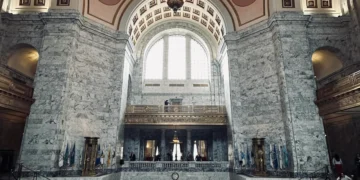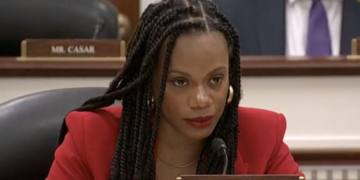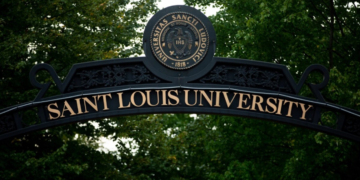Dec 22, 2024 Story by: Editor
D.C. Council member Kenyan R. McDuffie (I-At Large) introduced legislation to create a task force aimed at studying how reparations could be implemented. (Craig Hudson for The Washington Post)
A commission focused on exploring reparations for Black Washingtonians who are descendants of enslaved people or those impacted by Jim Crow-era institutional racism is advancing after receiving funding through the D.C. Council’s 2025 budget. This initiative positions the District alongside other localities across the U.S. seeking tangible ways to address the generational harms caused by slavery.
The council’s finalized $21 billion budget includes funding for the reparations commission, with a directive for the Office of the Chief Financial Officer to allocate resources to establish the task force.
Council member Kenyan R. McDuffie, who spearheaded the legislation to form the task force, noted that the $1.5 million in pre-allocated funds would enable the nine-member commission to begin work promptly once the council approves the bill. He shared plans to advance the Reparations Foundation Fund and Task Force Establishment Act in the fall, with nine co-sponsors already backing the measure, signaling its likely passage.
“It is definitely gratifying to get to this point. But it’s not over yet,” McDuffie said. “There’s still some steps that we have to get through at the council, but having the funding included in the budget to establish the creation of the commission, to do all the research that’s going to be required to develop potential proposals, is absolutely critical to moving it forward.”
McDuffie’s proposal outlines a mission for the task force to investigate ways of providing restitution to Black residents affected by systemic racism, starting from slavery. The plan also directs the D.C. Department of Insurance, Securities, and Banking to compile a database of slaveholding records, such as insurance policies enslavers used for those they owned. This component is also covered in the budget, according to McDuffie.
“I think you don’t get to really start chipping away at that racial wealth gap without an understanding of the history and the impact of industry, government policies that contributed to some of the outcomes that we still see today,” McDuffie explained, referencing a 2016 Urban Institute study revealing that White households in D.C. possess 81 times the wealth of Black households.
Patrice Sulton, executive director of the DC Justice Lab and a supporter of the bill, called the funding allocation a significant milestone for launching the commission. She emphasized that reparations could not only address economic disparities but also foster community safety, as economic inequality often fuels crime.
“It’s a really important time to be looking at this,” Sulton said. “It’s related to a lot of things people are looking at nationally in terms of the importance of understanding Black history and culture and the mistakes of the past, and it’s really a giant step forward that the council has said, ‘This is important.’”
If the council proceeds, the District would join other major cities and California in tackling the issue of reparations—a process often fraught with debate about identifying eligible recipients and determining funding sources. For instance, Evanston, Ill., became the first U.S. city to implement reparations through a restorative housing initiative. However, the program has faced legal challenges from a conservative group opposing its race-based criteria, which include an option for $25,000 cash payments.
McDuffie anticipates robust discussions in the fall regarding the future of D.C. ‘s reparations commission but emphasized that its initial role would be to assess feasibility and develop proposals. Deciding eligibility, quantifying reparations, and determining distribution methods would fall under the task force’s purview. The legislation suggests funding potential reparations through sales tax revenue and fees from the Department of Motor Vehicles—a proposal expected to spark significant debate.
Organizations like the DC Fiscal Policy Institute have voiced concerns about this approach, arguing that using revenue from fines and fees, which disproportionately impact Black neighborhoods, could inadvertently make Black residents contribute to their own reparations. Caitlin Schnur, the institute’s deputy policy director, advocates for taxing wealthy residents to fund reparations. “We know that wealth is predominantly held by White residents here in the District,” she stated. Source: Washington Post

















